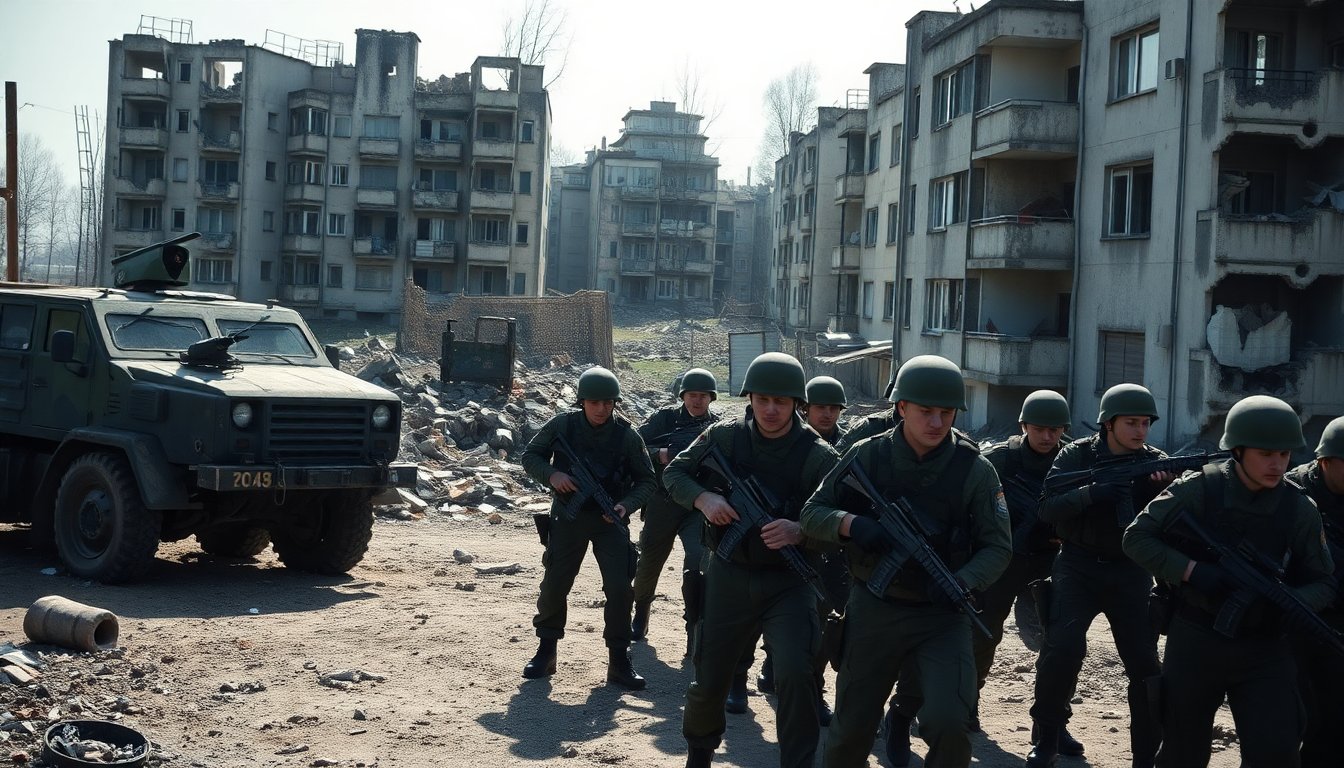Table of Contents
The ongoing conflict in Ukraine, particularly the fierce clashes in the city of Pokrovsk, serves as a critical lens through which to view Vladimir Putin’s military ambitions and the broader implications for peace negotiations. As Russian forces intensify their efforts in this strategic area, the outcomes of these battles not only affect local dynamics but also reflect the overarching goals of the Kremlin in this protracted conflict.
Current military situation in Pokrovsk
As of recent reports, the Ukrainian military is grappling with a significant escalation of artillery shelling from Russian forces in the southeastern Zaporizhia region. Observers indicate that the potential for a Russian takeover of Pokrovsk appears increasingly likely, as the battle lines shift and the intensity of the fighting grows. The situation has reached a critical juncture, with the Ukrainian command emphasizing the need for enhanced sanctions against Russia in response to the escalating attacks.
Challenges faced by Ukrainian forces
Ukrainian forces are currently engaged in a defensive operation, attempting to maintain positions amidst a barrage of Russian artillery and drone strikes. Reports indicate that Russian forces have made inroads into various sectors of Pokrovsk, though they have yet to fully encircle the city. This situation reflects a broader strategy by Russia to disrupt Ukrainian supply lines and logistics, especially towards Myrnohrad, which is vital for sustaining defensive operations.
Furthermore, Russian military intelligence suggests that the rate of advance by their forces has temporarily slowed down. This tactical pause is believed to be aimed at consolidating logistics and reinforcing troops in the southern regions of Pokrovsk. While some Russian commentators downplay the intensity of the fighting, the reality on the ground remains one of constant skirmishes and strategic maneuvers.
Implications for peace talks
The ongoing violence in Pokrovsk complicates the landscape for potential peace negotiations. As both sides continue to engage in tit-for-tat strikes against energy facilities, the prospect of a diplomatic resolution seems to dim. Ukraine’s calls for increased sanctions highlight a growing frustration with the international community’s response to Russian aggression. This ongoing conflict raises essential questions about the feasibility of peace talks, especially given the current military dynamics.
International reactions and support
In light of the escalating conflict, Western nations have been reevaluating their support for Ukraine. Recently, reports suggested that the ongoing U.S. government shutdown has hindered the export of vital military supplies to both NATO allies and Ukraine. This situation underscores the delicate balance of international politics and the direct impact it has on the ground in Ukraine.
As the military situation in Pokrovsk evolves, the need for a coordinated international response becomes increasingly paramount. Analysts warn that without a robust and timely reaction to Russian advances, the prospects for Ukraine’s defense could diminish significantly. Additionally, the recruitment of foreign fighters by Russia, including individuals from Africa, raises ethical concerns and complicates the narrative surrounding the war.
Conclusion
The battle for Pokrovsk is not merely a local skirmish; it symbolizes the broader struggle between Ukrainian sovereignty and Russian expansionism. As the situation unfolds, it becomes clear that understanding Putin’s objectives is critical for any meaningful dialogue aimed at achieving peace. The challenges faced by Ukrainian forces, coupled with international political dynamics, will play a crucial role in shaping the future of this conflict.
In summary, the fight for Pokrovsk exemplifies the complexities of modern warfare, where military engagements are intertwined with political maneuvering. As both sides prepare for what lies ahead, the international community must remain vigilant and responsive to the evolving crisis.


